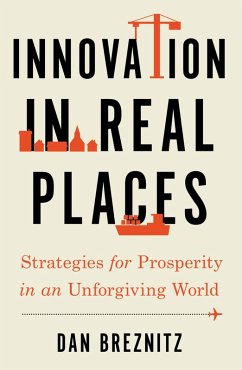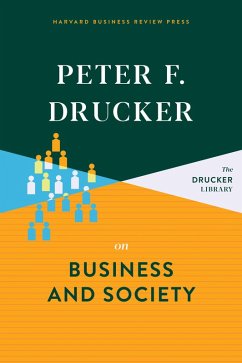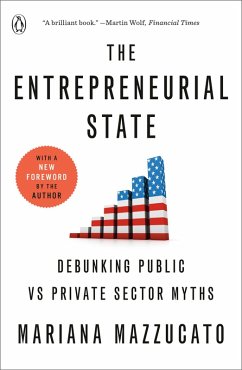
Innovation in Real Places (eBook, ePUB)
Strategies for Prosperity in an Unforgiving World
Versandkostenfrei!
Sofort per Download lieferbar
6,99 €
inkl. MwSt.
Weitere Ausgaben:

PAYBACK Punkte
3 °P sammeln!
Winner of Balsillie Prize for Public Policy Winner of Donner Prize A Summer Book of 2021, Financial Times Longlisted Financial Times and McKinsey Best Business Book of the Year A challenge to prevailing ideas about innovation and a guide to identifying the best growth strategy for your community. Across the world, cities and regions have wasted trillions of dollars on blindly copying the Silicon Valley model of growth creation. Since the early years of the information age, we've been told that economic growth derives from harnessing technological innovation. To do this, places must create good...
Winner of Balsillie Prize for Public Policy Winner of Donner Prize A Summer Book of 2021, Financial Times Longlisted Financial Times and McKinsey Best Business Book of the Year A challenge to prevailing ideas about innovation and a guide to identifying the best growth strategy for your community. Across the world, cities and regions have wasted trillions of dollars on blindly copying the Silicon Valley model of growth creation. Since the early years of the information age, we've been told that economic growth derives from harnessing technological innovation. To do this, places must create good education systems, partner with local research universities, and attract innovative hi-tech firms. We have lived with this system for decades, and the result is clear: a small number of regions and cities at the top of the high-tech industry but many more fighting a losing battle to retain economic dynamism. But are there other models that don't rely on a flourishing high-tech industry? In Innovation in Real Places, Dan Breznitz argues that there are. The purveyors of the dominant ideas on innovation have a feeble understanding of the big picture on global production and innovation. They conflate innovation with invention and suffer from techno-fetishism. In their devotion to start-ups, they refuse to admit that the real obstacle to growth for most cities is the overwhelming power of the real hubs, which siphon up vast amounts of talent and money. Communities waste time, money, and energy pursuing this road to nowhere. Breznitz proposes that communities instead focus on where they fit in the four stages in the global production process. Some are at the highest end, and that is where the Clevelands, Sheffields, and Baltimores are being pushed toward. But that is bad advice. Success lies in understanding the changed structure of the global system of production and then using those insights to enable communities to recognize their own advantages, which in turn allows to them to foster surprising forms of specialized innovation. As he stresses, all localities have certain advantages relative to at least one stage of the global production process, and the trick is in recognizing it. Leaders might think the answer lies in high-tech or high-end manufacturing, but more often than not, they're wrong. Innovation in Real Places is an essential corrective to a mythology of innovation and growth that too many places have bought into in recent years. Best of all, it has the potential to prod local leaders into pursuing realistic and regionally appropriate models for growth and innovation.
Dieser Download kann aus rechtlichen Gründen nur mit Rechnungsadresse in A, B, BG, CY, CZ, D, DK, EW, E, FIN, F, GR, HR, H, IRL, I, LT, L, LR, M, NL, PL, P, R, S, SLO, SK ausgeliefert werden.













